Special report
Change barrels into Yangon
Old trades at risk but residents quick to adapt to onslaught of economic activity

Every day Mr "Cassim" Khin Maung sits on the tiny balcony of the crumbling house, observing the choked street below - and fretting that his two sons may lose their sidewalk stall selling customised rubber stamps.
For this city, and for him, change is nothing new. Yet around the still fit and lean 86-year-old, Yangon is changing faster than even he can recall.
He was born just a couple of kilometres from where he now sits in the midst of dense downtown Yangon. But in 1941, the family had to flee to the suburbs when Japanese bombs fell in Pansodan Street, now rapidly becoming downtown Yangon's trendiest address, with chic bars and restaurants plugged into the peeling, yellowed surviving buildings of that era.
"My father made a hut for the family. I helped him sell things, whatever we could find, in the bazaar," he says. "But after the war we returned, and there were so many buildings just empty. We moved into this one."
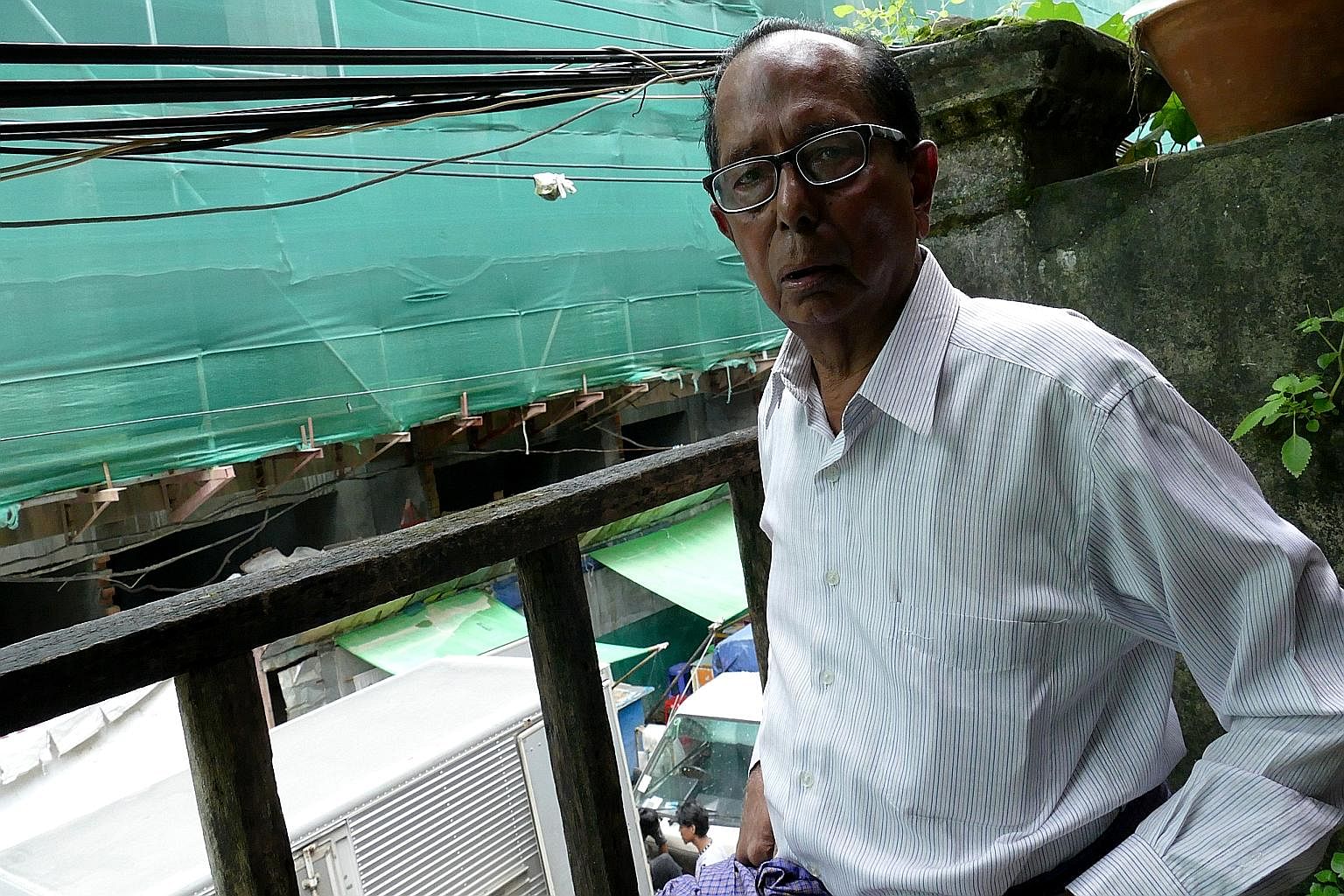
Like many in the city centre, the old building where he sits is due to be demolished. Opposite him, just metres across the lane, a big building is rising behind a diaphanous green screen.
Diagonally across the street corner, the even bigger mixed-use Sule Square development is emerging. New hotels are mushrooming throughout the city in an ongoing construction boom. The world's corporations have jostled to get into Yangon since the transition to a quasi-democratic government and a market economy began in 2011.
Among the crowded sidewalks, in streets jammed with new cars, there remains much of the old Yangon which, even under five decades of stifling dictatorship, always had a teeming informal sidewalk economy. But that is under pressure.
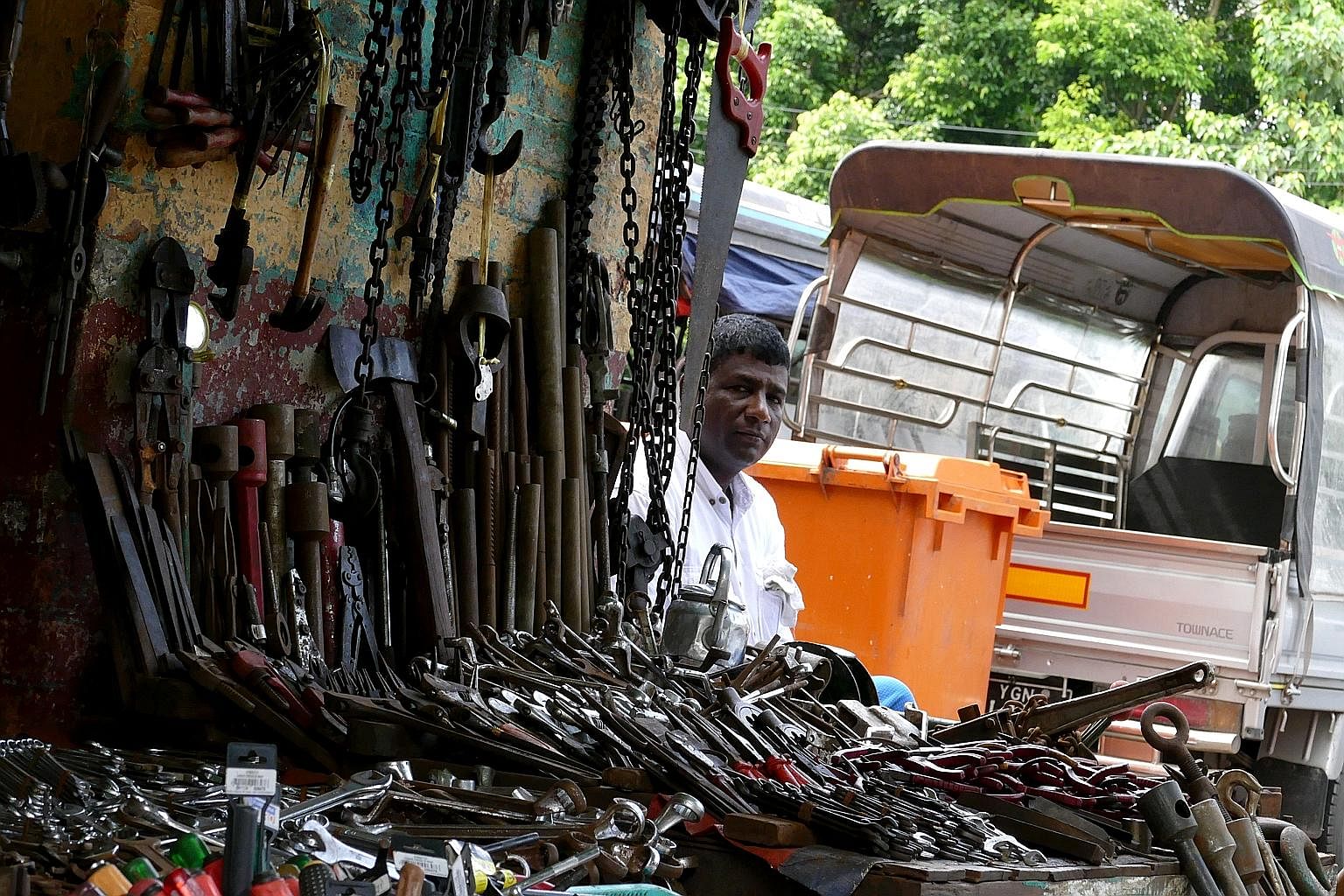
Mr Maung Htwe, 47, who sells used heavy tools, from hooks to wrenches to hammers and saws, has been at the corner of 21st Street and Anawratha for 29 years but, for the past five, business has dropped off as shiny new imported tools became available.
Change has come faster to Ms Thandar Htwe, 19, and her young cousin, who sit behind a rickety table on the sidewalk nearby, presiding over two telephones. A handwritten board tied to a roadside umbrella proclaims they run a public call office (PCO).
During the dictatorship, PCO women, their phones balanced on sidewalk tables, were a crucial bridge to the outside world for locals. Telephones were precious and mobile phones almost unheard of. Today, though, the PCO women who once clustered around street corners, especially near government offices where locals had to throng to get paperwork done, are vanishing fast.
In the old days, business was brisk and queues would form but now only five or six customers a day turn up, she says. At 100 kyats (10 Singapore cents) per minute to anywhere in Myanmar, Ms Thandar Htwe makes only small change on that volume but she gets by selling prepaid SIM cards. The PCO women soon will never be seen again - but they will have gone on to do other things.
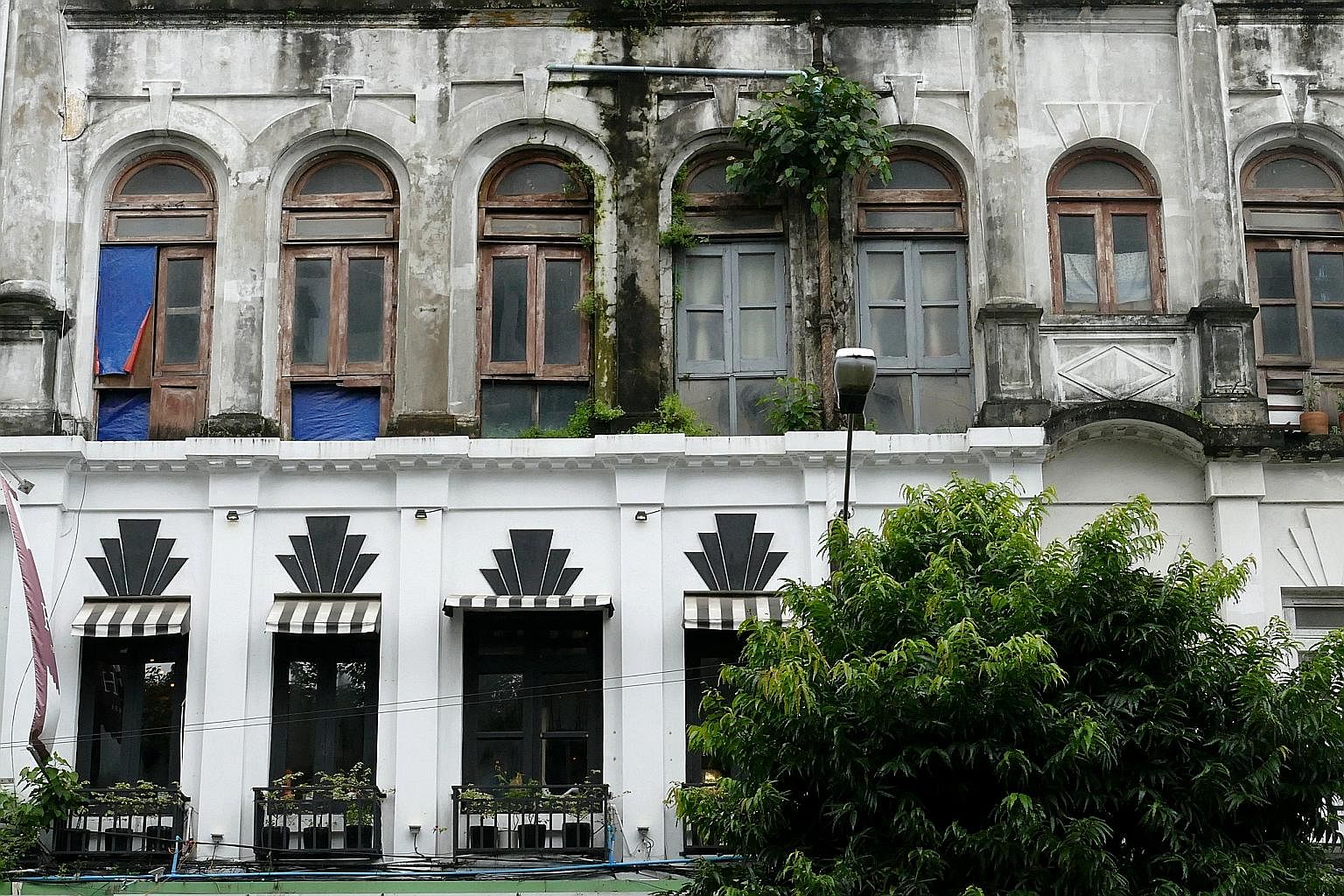
Adaptation is a strong point of the Myanmar people, says Mr Htet Myet Oo, co-owner of Rangoon Tea House, a trendy oasis in an otherwise dilapidated old building in Pansodan Road - with a stuck lift next door serving as someone's law office.
He has 40 staff, Mr Htet Myet Oo says, and "probably 70 to 80 per cent have something on the side which will make them some money. This adaptability is ingrained in the culture".
The 25-year-old left Myanmar when he was four and grew up in Britain. He returned in 2012, and worked initially for a year for the Yangon Heritage Trust set up to lobby for and advise on preservation of the old city's colonial architectural heritage - before deciding to restore the premises which the Rangoon Tea House now occupies.
"There have been massive changes in these past three years," he says. "Every day brings something new. The traffic is insane. I live just down the road; I chose the place because it was a quiet lane. Now, it is packed with cars."
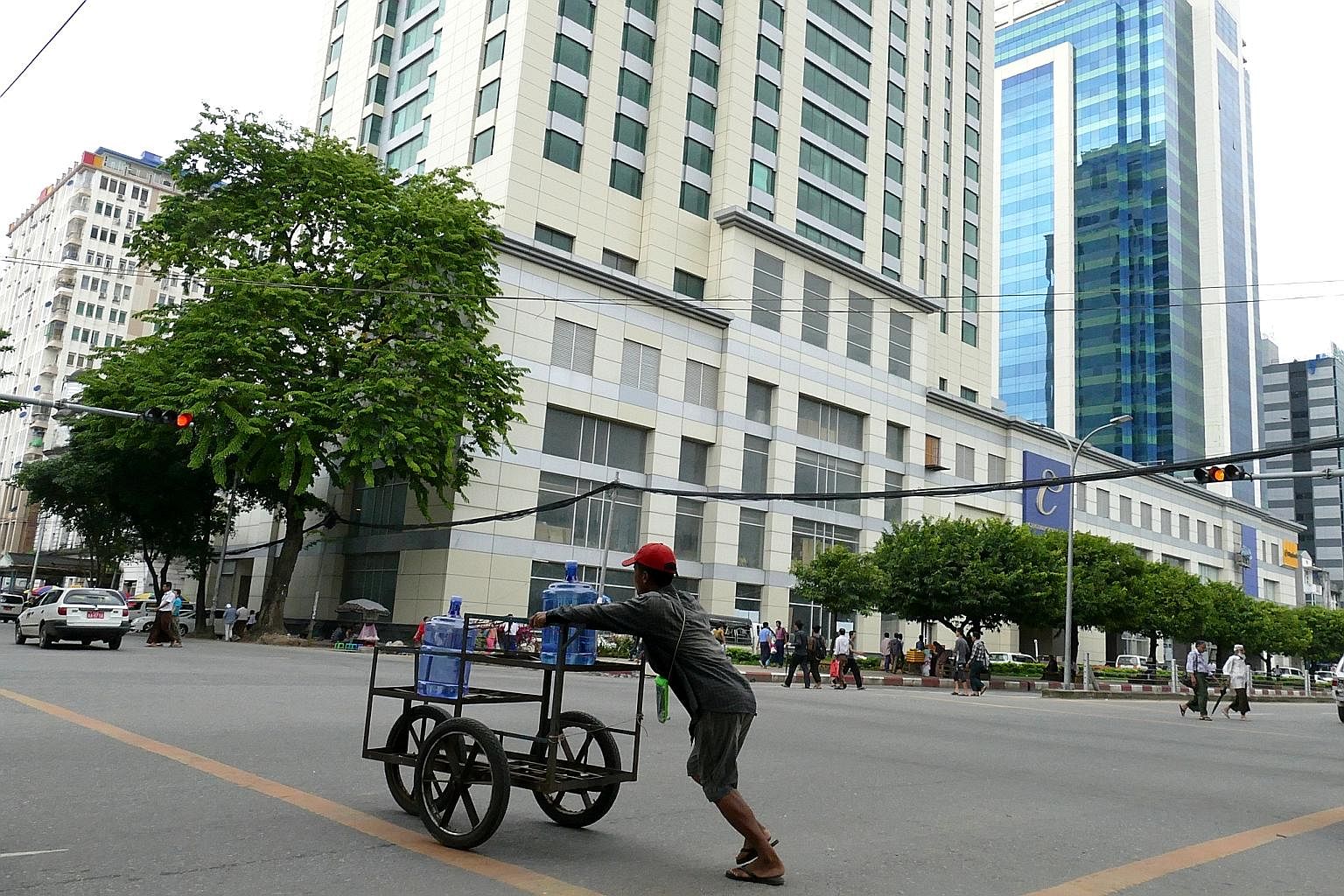
On his balcony overlooking Anawratha Road, Mr Cassim Khin Maung is looking forward to the apartment the family will get in the new building that will emerge after the current one is demolished in about two years.
He wonders, though, whether the physical changes will leave no place for the rubber stamp shops, which are his family's main income. "The shop is important, but it is on the pavement, so it is not legal," he says. "We don't know if we can keep that place."
Despite that worry, he is upbeat. "My philosophy is, be happy," he said. "We have been through ups and downs. When the Japanese were here, we lived in a small hut. I have seen the British, then the Japanese came, then the British came back.
"It depends on how you live," he says. "You just have to cope with situations."
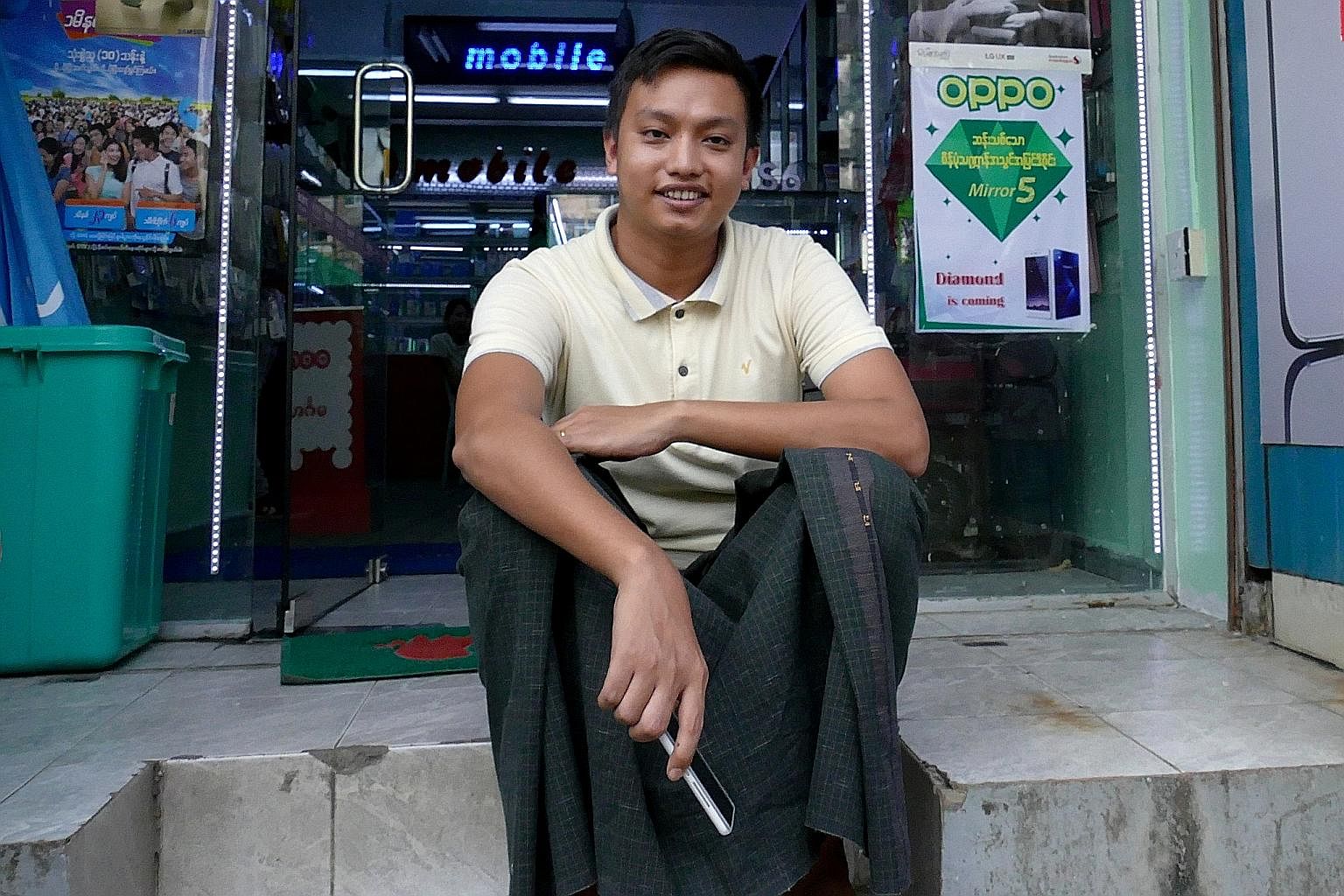
Join ST's Telegram channel and get the latest breaking news delivered to you.
A version of this article appeared in the print edition of The Straits Times on September 22, 2015, with the headline Change barrels into Yangon. Subscribe
